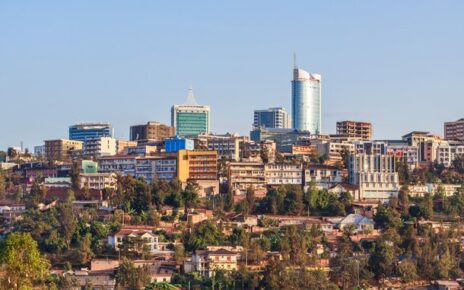In the world of politics, women’s representation has often been a topic of concern, with many countries struggling to achieve gender parity in their political systems. However, in the heart of Africa, Rwanda has emerged as a beacon of hope, setting an example for the world in its remarkable journey towards gender equality. The role of women in politics in Rwanda is a testament to the nation’s commitment to inclusivity and the empowerment of women, providing valuable insights into what can be achieved when political will and grassroots efforts align.
Rwanda’s journey towards gender equality in politics cannot be discussed without acknowledging its tumultuous history. The 1994 genocide against the Tusti left the country in shambles, with the loss of over one million lives and a deeply fractured society. In the aftermath, the Rwandan government was determined to rebuild the nation, and one key component of their strategy was to promote women’s participation in all aspects of society, especially politics.
Rwanda’s commitment to gender equality in politics began with the adoption of affirmative action policies and political quotas. The country’s new constitution, established in 2003, mandated that at least 30% of parliamentary seats be reserved for women. This was a groundbreaking move, considering that many countries were still struggling to reach even the 20% mark. By 2008, Rwanda exceeded this requirement, with women holding 56% of seats in its parliament, the highest in the world at the time.
Rwanda’s commitment to women’s participation went beyond mere tokenism. The government recognized that simply reserving seats was not enough; it was essential to ensure that women in these roles were empowered and active participants in the political process. This commitment is exemplified by the country’s Women’s Councils, a network of local women’s groups that focus on community development, women’s rights, and political engagement. These councils have not only promoted the participation of women but also contributed to their leadership development.
Rwanda’s focus on women’s empowerment did not stop at parliamentary quotas. Women have been encouraged to participate at all levels of government, from the village to the national level. In local government, women hold leadership roles in various sectors, such as education, health, and economic development. The commitment to gender equality is evident in the gender-balanced cabinet, with women holding key ministerial positions. This reflects Rwanda’s dedication to having women in decision-making roles across all aspects of governance.
Rwanda’s remarkable progress in promoting women’s participation in politics has had a profound impact on the nation. Women have played a crucial role in shaping policies that address issues such as gender-based violence, economic development, and access to education. They have been at the forefront of efforts to heal the wounds of the past, working to build a more inclusive and equitable society. Their presence in politics has fostered a sense of collective responsibility for the well-being of all citizens.
What can World learn from Rwanda’s system ?
Rwanda’s journey towards gender equality in politics offers valuable lessons for the world. It demonstrates that political will and affirmative action can make a significant difference in women’s representation. Rwanda’s success is not solely due to quotas; it is the result of a comprehensive approach that includes women’s empowerment, education, and grassroots involvement. It is a model for nations striving to achieve gender parity in politics.
However, it is crucial to recognize that what has worked for Rwanda may not be a one-size-fits-all solution for every country. Cultural, social, and political contexts vary, and successful strategies should be tailored to suit each unique situation. Nonetheless, Rwanda’s example serves as a powerful reminder that gender equality in politics is not a distant dream but an achievable reality.
Rwanda’s path to gender equality in politics is a compelling narrative of resilience and progress. The country has shown the world that with political will, affirmative action, and a focus on women’s empowerment, substantial strides can be made in women’s representation in politics. The role of women in politics in Rwanda is an inspiration for the global community, a testament to what can be achieved when a nation embraces inclusivity and recognizes the invaluable contributions of all its citizens, regardless of gender. Rwanda’s journey provides hope and guidance for the ongoing global quest for gender equality in politics.
Today according to Rwandan Parliament, Rwanda is the first country in the world with female majority in parliament with 61.3% in the Chamber of Deputies.

Author Profile

Latest entries
 INTERNATIONALMay 9, 2024USA: Former senator accuses Biden of sexually assaulting her
INTERNATIONALMay 9, 2024USA: Former senator accuses Biden of sexually assaulting her INTERNATIONALMay 7, 2024Russia: Vladimir Putin inaugurated for fifth term
INTERNATIONALMay 7, 2024Russia: Vladimir Putin inaugurated for fifth term RWANDAApril 17, 2024Rwanda: Tribert Rujugiro, Rwandese Multi-Millionaire entrepreneur, passes away
RWANDAApril 17, 2024Rwanda: Tribert Rujugiro, Rwandese Multi-Millionaire entrepreneur, passes away KWIBUKA 30April 7, 2024#Kwibuka30: ‘You are not alone’ Chris Model stands with survivors
KWIBUKA 30April 7, 2024#Kwibuka30: ‘You are not alone’ Chris Model stands with survivors





